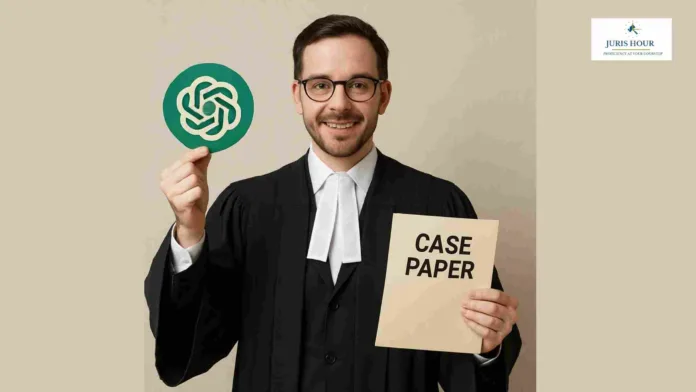An In-Depth Look at AI’s Role in the Legal Profession
As the legal industry continues to evolve with the help of technology, artificial intelligence (AI) has emerged as a game-changer. Among AI tools, OpenAI’s ChatGPT is quickly gaining ground for its versatility, speed, and cost-efficiency. Far from replacing lawyers, ChatGPT serves as a powerful assistant that enhances their productivity, improves research capabilities, and streamlines client communication. Here’s a detailed exploration of how ChatGPT is helping legal professionals in their day-to-day work.
Table of Contents
1. Legal Research and Case Law Summarization
Legal research is one of the most time-consuming aspects of a lawyer’s work. ChatGPT can assist by:
- Summarizing complex judgments into easily understandable formats.
- Extracting key legal principles, doctrines, and precedents from cases.
- Assisting with jurisdiction-specific law summaries (when provided with relevant data or access).
- Reducing time spent navigating dense legal databases.
Although it cannot replace traditional legal research tools like SCC Online or Westlaw, ChatGPT can be used in parallel to gain quick overviews or second opinions.
2. Drafting Legal Documents
Lawyers spend a significant amount of time drafting documents. ChatGPT can speed up this process by generating:
- Contracts, agreements, and MoUs (e.g., NDAs, lease agreements, employment contracts).
- Petitions, legal notices, and replies.
- Court submissions and affidavits (under the lawyer’s guidance).
- Standard clauses tailored to specific needs.
While outputs must be reviewed and finalized by qualified legal professionals, ChatGPT greatly reduces the initial drafting workload.
3. Reviewing Contracts and Identifying Risk
Although ChatGPT does not provide real-time collaboration on legal documents, it can:
- Help lawyers review contracts clause by clause, identifying potential red flags or missing provisions.
- Suggest alternative phrasings to reduce ambiguity.
- Highlight non-compliance with statutory requirements when prompted appropriately.
This makes it a useful second-level review assistant, especially for junior lawyers and in-house counsel.
4. Legal Writing and Content Creation
From blogs to case studies and newsletters, lawyers often need to produce well-written content. ChatGPT can:
- Draft articles on new judgments or legislative changes.
- Prepare FAQs, explainers, or guides for clients or the public.
- Help with SEO-optimized legal content for law firm websites.
This supports both legal outreach and marketing efforts.
5. Client Communication & Responses
Client communication must be clear, prompt, and professional. ChatGPT can assist by:
- Drafting initial client emails, status updates, or explanatory notes.
- Translating legal jargon into layman’s terms.
- Assisting lawyers in preparing scripts for client consultations or presentations.
This enables lawyers to maintain high responsiveness without compromising clarity.
6. Litigation Preparation
In preparation for court proceedings, ChatGPT can:
- Help summarize evidence or testimony.
- Generate questions for cross-examination or depositions.
- Draft opening or closing arguments, which can then be refined for style and tone.
While not a substitute for experience or strategy, AI can serve as a brainstorming partner.
7. Compliance and Regulatory Guidance
In corporate practice, lawyers are often asked to interpret complex regulations. ChatGPT can:
- Provide initial summaries of applicable laws and guidelines (if details are input by the user).
- Assist with compliance checklists and gap analyses.
- Generate reports for internal audits or due diligence processes.
This is especially helpful in industries like finance, pharmaceuticals, and data protection.
8. Law Firm Operations and Internal Efficiency
Beyond client work, ChatGPT can assist firms internally by:
- Automating routine emails and document templates.
- Assisting with employee onboarding materials and policies.
- Supporting HR with employment contracts, handbooks, or code of conduct drafts.
For small and mid-sized firms, this can significantly reduce administrative burden.
9. Legal Education and Training
ChatGPT is also a powerful tool for law students and junior associates:
- Explaining concepts of law, doctrines, and case laws in simple terms.
- Creating mock case studies, quizzes, and revision notes.
- Helping prepare for bar exams or judicial service examinations with practice Q&As.
Firms can also use it to design training modules or practice simulations for young lawyers.
10. Limitations and Ethical Concerns
While ChatGPT is a valuable tool, it is not without limits:
- Not a substitute for a lawyer’s judgment: It can hallucinate facts or give outdated legal interpretations.
- Not a licensed legal advisor: It must never be used to give legal advice without human oversight.
- Confidentiality: Sensitive client data should not be input into any AI system without safeguards.
- Jurisdictional variance: Laws vary across countries and states, and ChatGPT may not always reflect those nuances unless clearly specified.
Lawyers must ensure AI use complies with Bar Council of India guidelines and data protection laws (like the DPDP Act, 2023).
Conclusion
ChatGPT is transforming the way legal professionals approach their work — making them faster, smarter, and more efficient. When used responsibly, it serves as an intelligent legal assistant that complements human expertise. Rather than replacing lawyers, it empowers them to focus on what matters most: strategy, judgment, and client advocacy.
Read More: Mumbai Court Grants Bail In Rs. 92 Crores GST Evasion Case

